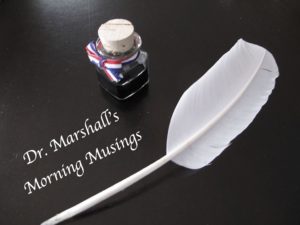The Fertile Soil of Childhood
I wish I had come up with this phrase, but I have to give credit to Lenore Skenazy, author of Free Range Kids. Skenazy happily refers to herself as the “world’s worst mom.” Though I have not yet read her book, it is on my holiday reading list. Skenazy, of course, is openly critical of helicopter parents, those who feel compelled to manage their children’s lives from conception to…hmmm, to when? When does it end? When they go away to college? After they get their first job? When they move out of the house? When they marry (or cohabitate)?
The urge to hover over our children is not new. We have always had stage moms and coaching dads standing close by pulling strings and setting things up so that their child gains a slight advantage. If you want to read about a real helicopter parent, check out Agrippina the Younger, mother of the Roman emperor, Nero. And that was more than 2000 years ago.
Skenazy argues that children will benefit from a little “benign neglect.” That’s not her phrase or mine. It was advice to house plant enthusiasts; stop fussing over your plants. Give them a little fertilizer, give them a little water and let them grow. They will be fine. So too with children. Give them what they need and let them grow; like free range chickens they will find the other things they need. And in the process, they will become stronger, healthier, and more resourceful.
Most importantly, their successes and their failures will be theirs, not ours. Imagine how disheartening it is for children to know that they got an A or they won an award because we orchestrated it for them. When we help too much we deny our children the opportunity to feel a sense of accomplishment. When we stack the deck in their favor, it is our victory, not theirs. Likewise, if we arrange things so that they never fail, we deny them the opportunity to learn to handle failure and disappointment.
Clearly, children today are living in a much more competitive environment. We see it everywhere. They compete to get into specialized high schools or into AP and honors classes. They compete in sports to make the year-round travel team. They compete in the arts to win state and national competitions. But raising children should not be driven by fear that our children might get hurt, or feel disappointment, or, heaven forbid, be bored.
There is also the fear that our children live in a dangerous world and they need to be protected and followed. We have GPS trackers on their phones and in our cars. We are following, monitoring, tracking, hovering, supporting, pushing, and prodding. Skenazy makes another good point when she asks “Do you wish you had grown up with your mom tracking your every move? If not, don’t do it to your kid.”
Remember, we are advising “benign neglect.” Of course, you should protect your children, you should keep them safe, and you should be an enthusiastic participant in their activities. But it is their life, their expectations, their successes and failures. And it is in the “fertile soil of childhood” that they should learn how to do these things for themselves. If you get too close, if you find yourself doing things FOR them rather than WITH them, if THEIR life becomes YOUR life, if you feel the need to know where they are at all times, you are probably too close and it is time for some benign neglect.
Give them a little fertilizer, give them a little water; give them a free range. They’ll find a way and they will be healthier for it.

About the author